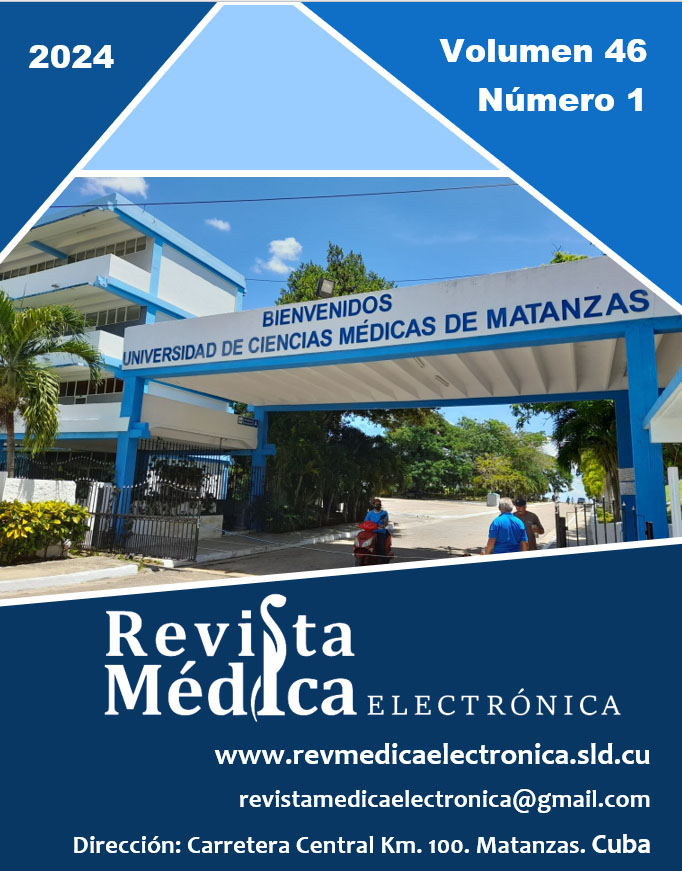Effectiveness in the implementation of bundle preventive packages
Keywords:
healthcare-associated infection, behavioral intervention, preventive packagesAbstract
Bundles, composed of three to five essential care practices, are crucial for safety and efficiency in patients with health risks, in the prevention of infections, and the improvement of medical care. The objective of this study is to define the importance of implementing bundle preventive packages and their impact on the control of healthcare-associated infections and patient safety. A systematic review was conducted according to PRISMA standards, searching for original articles in PubMed, Cochrane, Web of Science, and Scopus (2015-2023) on the use of bundles in healthcare-associated infections in adults. Prospective clinical or observational trials were included and animal studies and other systematic reviews were excluded. Varied approaches were found in the implementation of bundles, with limitations in some studies. The REACH cleaning package demonstrated significant reductions in infection incidence, supporting its effectiveness and cost-effectiveness. It is concluded that the studies reviewed show the effectiveness of preventive packages in reducing healthcare-associated infections. In addition, the importance of improving patient safety is highlighted. Similarities and variations in the strategies implemented were identified, such as the need for interdisciplinary collaboration and economic evaluation to ensure the sustainability of these evidence-based interventions.
Downloads
References
2. Smith V, Devane D, Nichol A, et al. Care bundles for improving outcomes in patients with COVID-19 or related conditions in intensive care - a rapid scoping review. Cochrane Database Syst Rev. 2020;12(12):CD013819. DOI: 10.1002/14651858.CD013819.
3. Joint Comisión Perspectives on Paciente Safety. Superar Los Obstáculos Utilizando Un “Conjunto De Medidas Para El Cuidado De La Salud” (“Bundles”). Boston: Grupo Asesor Control de Infecciones y Epidemiología; 2008.
4. Lavallée JF, Gray TA, Dumville J, et al. Los efectos de los paquetes de atención en los resultados de los pacientes: una revisión sistemática y un metanálisis. Implement Sci. 2017;12(1):142. DOI: 10.1186/s13012-017-0670-0.
5. Real-López L, Parra-Anguita L, Pancorbo-Hidalgo PL, et al. Uso de la metodología de paquete de cuidados (care bundle) aplicada a la prevención de lesiones por presión adquiridas en hospital en pacientes adultos: revisión exploratoria. Gerokomos [Internet]. 2023 [citado 09/11/2024];34(1):68-77. Disponible en: https://scielo.isciii.es/scielo.php?script=sci_arttext&pid=S1134-928X2023000100012
6. Aveiga Ligua FL, Redrovan Vivanco JM, Gruezo Realpe PM, et al. Prevalencia de las infecciones asociadas a la atención de salud en hospital oncológico de Guayaquil. Rev Cubana Inv Bioméd [Internet]. 2024 [citado 17/11/2024];43. Disponible en: https://revibiomedica.sld.cu/index.php/ibi/article/view/3174
7. Denkel LA, Schwab F, Clausmeyer J, et al. Central-line associated bloodstream infections in intensive care units before and after implementation of daily antiseptic bathing with chlorhexidine or octenidine - A post-hoc analysis of a cluster-randomised controlled trial. Antimicrob Resist Infect Control. 2022. DOI: 10.21203/rs.3.rs-1644513/v1.
8. Horgan S, Hegarty J, Drennan J, et al. The effect of interventions on the incidence of surgical site infections in acute care settings: A systematic review. J Tissue Viability. 2024;33(1):75-88. DOI: 10.1016/j.jtv.2023.11.004.
9. White NM, Barnett AG, Hall L, et al. Cost-effectiveness of an environmental cleaning bundle for reducing healthcare-associated infections. Clin Infect Dis. 2020;70(12):2461-8. DOI: 10.1093/cid/ciz717.
10. Graves N, Mitchell BG, Otter JA, et al. The cost-effectiveness of temporary single-patient rooms to reduce risks of healthcare-associated infection. J Hosp Infect. 2021;116:21-8. DOI: 10.1016/j.jhin.2021.07.003.
11. de Melo LSW, de Abreu MVM, de Oliveira Santos BR, et al. Partnership among hospitals to reduce healthcare associated infections: a quasi-experimental study in Brazilian ICUs. BMC Infect Dis. 2021;21(1). DOI: 10.1186/s12879-021-05896-0.
12. Hagel S, Ludewig K, Pletz MW, et al. Effectiveness of a hospital-wide infection control programme on the incidence of healthcare-associated infections and associated severe sepsis and septic shock: a prospective interventional study. Clin Microbiol Infect. 2019;25(4):462-8. DOI: 10.1016/j.cmi.2018.07.010.
13. Frödin M, Ahlstrom L, Gillespie BM, et al. Effectiveness of implementing a preventive urinary catheter care bundle in hip fracture patients. J Infect Prev. 2022;23(2):41-8. DOI: 10.1177/17571774211060417.
14. Sreeramoju P, Voy-Hatter K, White C, et al. Results and lessons from a hospital-wide initiative incentivised by delivery system reform to improve infection prevention and sepsis care. BMJ Open Qual. 2021;10(1):e001189. DOI: 10.1136/bmjoq-2020-001189.
15. Van Decker SG, Bosch N, Murphy J. Catheter-associated urinary tract infection reduction in critical care units: a bundled care model. BMJ Open Qual. 2021;10(4):e001534. DOI: 10.1136/bmjoq-2021-001534.
16. Rongrungruang Y, Sovachinda R, Ngampetch S, et al. Chlorhexidine wipes to reduce multidrug-resistant gram-negative bacterial colonization and healthcare-associated infections among medical inpatients: A cluster-randomized trial. J Med Assoc Thai [Internet]. 2021 [citado 10/03/2024];104(4):629-36. Disponible en: https://mahidol.elsevierpure.com/en/publications/chlorhexidine-wipes-to-reduce-multidrug-resistant-gram-negative-b
17. Ganesan V, Sundaramurthy R, Thiruvanamalai R, et al. Hand hygiene auditing: Is it a roadway to improve adherence to hand hygiene among hospital personnel? Cureus. 2022;14(5):e25221. DOI: 10.7759/cureus.25221.
18. Flodgren G, Conterno LO, Mayhew A, et al. Interventions to improve professional adherence to guidelines for prevention of device-related infections. Cochrane Database Syst Rev. 2013;(3):CD006559. DOI: 10.1002/14651858.cd006559.pub2.
19. Moralejo D, El Dib R, Prata RA, et al. Improving adherence to Standard Precautions for the control of health care-associated infections. Cochrane Database Syst Rev. 2018;2(2):CD010768. DOI: 10.1002/14651858.cd010768.pub2.
20. Aboelela SW, Stone PW, Larson EL. Effectiveness of bundled behavioural interventions to control healthcare-associated infections: a systematic review of the literature. J Hosp Infect. 2007;66(2):101-8. DOI: 10.1016/j.jhin.2006.10.019.
Downloads
Published
How to Cite
Issue
Section
License
All content published in this journal is Open Access, distributed under the terms of the CC BY-NC 4.0 License.
It allows:
- Copy and redistribute published material in any medium or format.
- Adapt the content.
This will be done under the following terms:
- Attribute the authors' credits and indicate whether changes were made, in which case it must be in a reasonable way.
- Non-commercial use.
- Recognize the journal where it is published.
The copyrights of each article are maintained, without restrictions.






